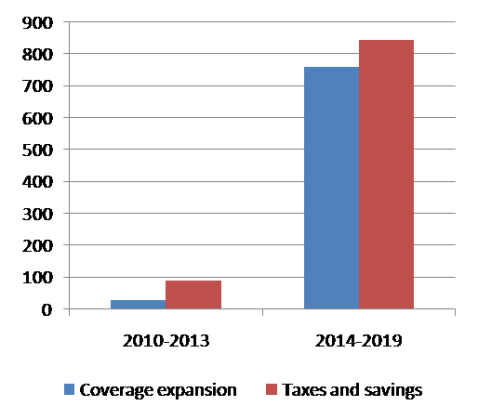OUCH!
http://krugman.blogs.nytimes.com/2010/03/27/file-under-vile/File Under Vile
Paul Krugman
OK, I finally got around to reading Douglas Holtz-Eakins op-ed on health care reform. Its much worse than I thought;
time to scratch Holtz-Eakin off my shrinking list of reasonable, reasonably honest conservatives.How bad is it? Holtz-Eakin declares that
Gimmick No. 1 is the way the bill front-loads revenues and backloads spending. That is, the taxes and fees it calls for are set to begin immediately, but its new subsidies would be deferred so that the first 10 years of revenue would be used to pay for only 6 years of spending.
I think thats what is technically known as a lie. Holtz-Eakin, of all people, knows how to read a CBO report. So hes perfectly capable of looking at the actual report (pdf) and seeing that the revenues, like the costs, are minimal for the first four years. Heres the chart:
 His implication that theres funny business going on is totally false, and he knows it.
His implication that theres funny business going on is totally false, and he knows it.Wait, it gets worse: Holtz-Eakin implies that there are hidden, delayed costs:
Consider, too, the fate of the $70 billion in premiums expected to be raised in the first 10 years for the legislations new long-term health care insurance program. This money is counted as deficit reduction, but the benefits it is intended to finance are assumed not to materialize in the first 10 years, so they appear nowhere in the cost of the legislation.
Claims that the plan is window-dressed to look good in its first decade only to go sour later might sound plausible except for the fact that the CBO projects bigger deficit-reduction in the second decade of the reform than in the first decade, something that wouldnt happen if lots of costs were being hidden by being pushed off into the future.
That said,
we do learn something important from Holtz-Eakins article. If this is the best critique a conservative budget wonk can come up with if deliberately misrepresenting how the legislation works is the only way to make it seem irresponsible then the bill must be pretty sound in fiscal terms.